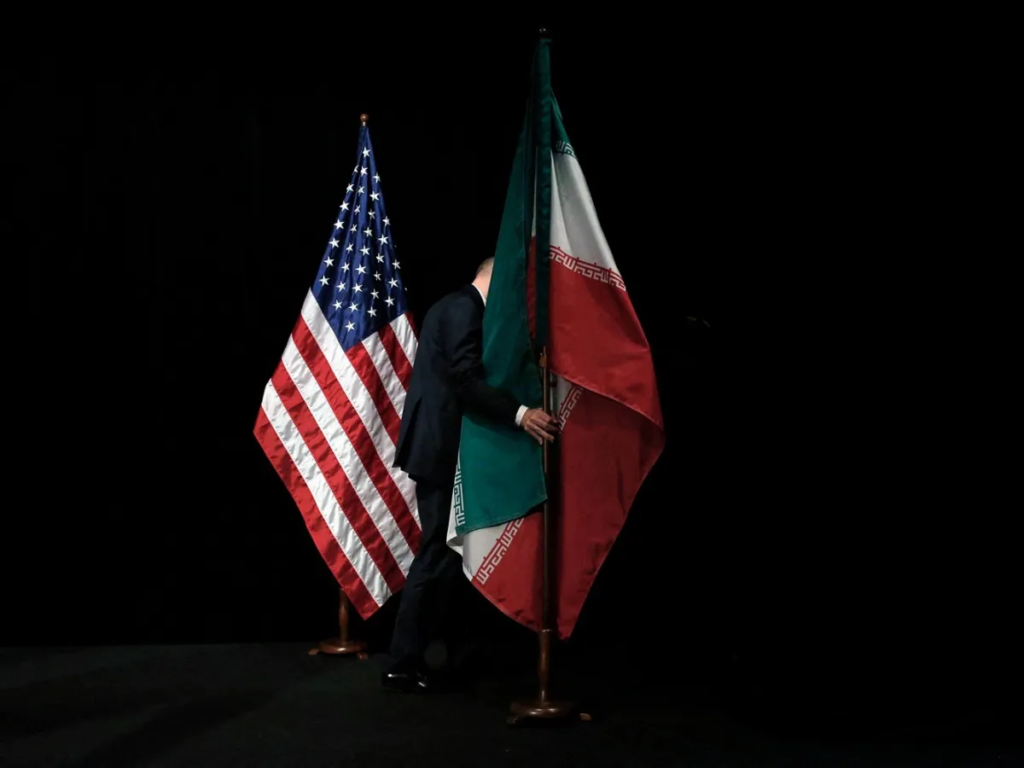Middle East Policy: Imperial Continuity in Disguise
The transition between administrations offered an opportunity to fundamentally reorient U.S. foreign policy, particularly in the Middle East. Yet, the same imperial logic that has guided American strategy for decades remains intact. The pivot toward Asia and the focus on great-power competition with China have merely shifted the spotlight while leaving the Middle East in a state of managed neglect. This neglect, far from benign, perpetuates violence and suffering across the region.
One glaring example is the refusal to renegotiate the 2015 Iran nuclear deal. By maintaining the sanctions and confrontational stance of the previous administration, the current leadership has continued to inflict economic and humanitarian hardship on the Iranian people, prioritizing U.S. geopolitical leverage over diplomatic solutions. Similarly, the suspension of financial support for Palestinian aid organizations following dubious accusations of links to Hamas reflects a broader disregard for Palestinian lives and rights. These policies are not neutral; they are active choices that sustain occupation and apartheid in the region.
The consequences are devastating. The recent Gaza conflict underscores how U.S. disengagement enables Israel’s aggressive military actions, with catastrophic effects on civilians. This is not merely a failure of policy but a tacit endorsement of a settler-colonial regime. A truly transformative U.S. approach would involve cutting military aid to Israel, ending its diplomatic shielding of Israeli crimes at the United Nations, and applying pressure to dismantle apartheid structures. Instead, imperial interests continue to dictate U.S. complicity in these injustices.

The U.S.-Israel Axis: A Partnership in Oppression
The U.S.-Israel relationship exemplifies the intersection of imperialism and transactional politics. Under successive administrations, this partnership has advanced policies that entrench inequality and violence. The recognition of Israeli sovereignty over illegally occupied territories and the relocation of the U.S. embassy to Jerusalem were not isolated incidents but emblematic of a broader strategy to support Israel’s expansionist goals at the expense of Palestinian self-determination.
This alignment is driven by both domestic and international factors. Pro-Israel lobbies and corporate interests have ensured that U.S. policies favor military-industrial profits over justice. The assassination of Iranian General Qasem Soleimani, facilitated by U.S.-Israeli intelligence collaboration, epitomized the reckless militarism of this alliance. Such actions do not enhance security; they deepen instability and perpetuate cycles of violence.
A socialist critique would call for dismantling this militarized partnership entirely. The billions in military aid sent to Israel could be redirected to address urgent social needs at home, from housing and healthcare to climate adaptation. The U.S. should stand with movements for Palestinian liberation and hold Israel accountable for its apartheid regime and war crimes. Only then can it claim to support human rights and international law.

Domestic Policies: Austerity and Polarization
While U.S. foreign policy remains deeply rooted in imperial logic, domestic governance reflects the same prioritization of elite interests over working people. The rise of far-right populism has been fueled by economic precarity, cultural alienation, and a failure of the political establishment to deliver meaningful change. Yet, the solutions offered by these movements exacerbate inequalities rather than address them.
Despite rhetoric about supporting the working class, policies under recent administrations have failed to challenge the structural drivers of inequality. Protectionist measures like tariffs may generate headlines, but without robust industrial policies, they do little to create sustainable jobs or rebuild communities hollowed out by decades of neoliberal globalization. Instead, corporate profits and stock market gains remain the primary metrics of success.

The far-right’s mobilization around cultural grievances has distracted from the material conditions that underpin worker discontent. Promises of economic renewal ring hollow in the absence of universal healthcare, living wages, and housing as a guaranteed right. Meanwhile, institutional reforms proposed by far-right elements aim to entrench minority rule rather than expand democracy, further marginalizing the majority.
A socialist alternative would reject this false populism and demand transformative change: nationalizing key industries to ensure public control over essential resources, taxing the wealthy to fund public services, and building power through unions and grassroots movements. Economic justice must be central to any effort to counteract the appeal of far-right authoritarianism.
A Call for Transformation
The crises of U.S. foreign and domestic policy are not isolated; they are interconnected symptoms of a system that prioritizes profit and power over people and justice. Addressing these crises requires a fundamental shift away from imperial dominance and corporate control. Internationally, this means ending wars of aggression, supporting self-determination, and redistributing wealth to address global inequalities. Domestically, it means dismantling systems of oppression and exploitation, from the carceral state to predatory capitalism.
A socialist vision offers a path forward—one grounded in solidarity, cooperation, and shared prosperity. It demands not only an end to the policies that perpetuate harm but also the creation of new structures that empower communities, protect the planet, and uphold the dignity of all people. The time for incremental change has long passed; what is needed now is a bold and radical reimagining of what U.S. policy can and should be.


